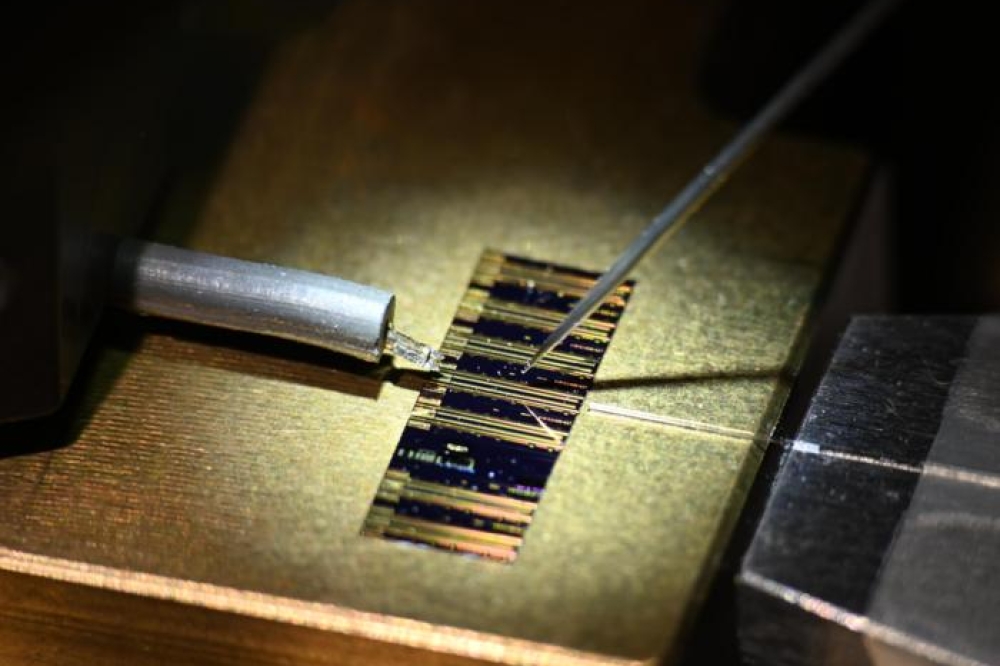News Article
Episolar founder recognised as White House “Champion of Change”
The CdTe (cadmium telluride) modules could be used for the development of low-cost, high-performance flexible photovoltaic panels
Siva Sivananthan was honoured as one of eleven Immigrant Innovator "Champions of Change."
These pioneers strive to better the economy by creating American jobs in dynamic technology sectors to foster sustainable growth throughout the country.

Siva Sivananthan
Sivananthan was recognised for his work in the development of night vision technology.
A professor of Physics at the University of Illinois at Chicago (UIC), Sivananthan is also the founder of the Bell Labs-styled incubator, Sivananthan Laboratories, and the recipient of two awards under the Energy Department’s SunShot Initiative.
Born in Chavakacheri, Sri Lanka, Sivananthan came to the United States in 1982 as a master’s candidate at UIC, where he went on to earn his Ph.D. in physics.
His research allowed him to pioneer an approach for growing cadmium telluride (CdTe) - a high-performance semiconductor that is incredibly efficient at turning sunlight into electricity . Utilising this promising technology, his aim was to decrease the production cost of photovoltaic cells while maintaining high performance.
With the view of commercialising solar energy technologies, he founded Episolar, Inc.- a company incubated under the umbrella of Sivananthan Laboratories and enjoying access to its infrastructure and facilities. Episolar’s mission is to develop CdTe-based solar cells with a focus on efficient, inexpensive, flexible photovoltaic products.
Sivananthan always looked for opportunities to make a difference to the United States and the world. From his childhood days in Sri Lanka, he saw the need for powering villages, a dream that could be realised by harvesting solar energy using flexible sheets on thatched roofs.
With his work on devices based on II-VI semiconductors, such as infrared detectors and imagers, he saw employing photovoltaic technology based on II-VI materials as the medium for flexible solar cells.
He commenced fundamental research supported by the Department of Energy through awards such as the 2009 SunShot Incubator and a current SunShot BRIDGE to better understand how defects in crystals impact CdTe solar cell efficiencies.
Sivananthan says, "I am excited that EPIR will focus on commercialising infrared products and services, while Episolar will focus on CdTe-based photovoltaic solar."
He recently recruited Ramesh Dhere to join the Episolar team. Dhere worked at the National Renewable Energy Laboratory for over 27 years and has been involved in research on CdTe solar cells for over 20 years.
He contributed to the development of high-efficiency polycrystalline CdTe, which led to a device with a record-setting 16.7 percent efficiency in 2001. Recently, he spearheaded work on substrate-structure CdTe devices which, after only two years’ work, yielded open-circuit voltages over 860 mV, comparable to the best of traditional superstrate-structure CdTe devices.
Flexible photovoltaic panels are ideal in applications requiring rapid deployment such as natural disasters and military operations. Lightweight flexible panels are attractive for Building Integrated PV (BIPV) applications such as roof-top installations.
The potential for this market is large and could be fully exploited with the development of low-cost, high-performance flexible photovoltaic panels - the focus of Episolar.
Flexible panels for roof-tops can reduce system costs by reducing transportation and installation costs, eliminating land acquisition costs, which are important in urban areas, and by producing energy close to the point of use, thus minimising the load on the grid. With Sivananthan’s experience in the development of high-performance CdTe-based infrared detectors and Dhere’s experience in developing polycrystalline CdTe devices.
Ramesh Dhere says, “I am looking forward to the challenging work of developing next generation CdTe solar cells at Episolar. It is a wonderful opportunity to work with Dr. Siva and the outstanding team he has assembled at Sivananthan Laboratories”.































